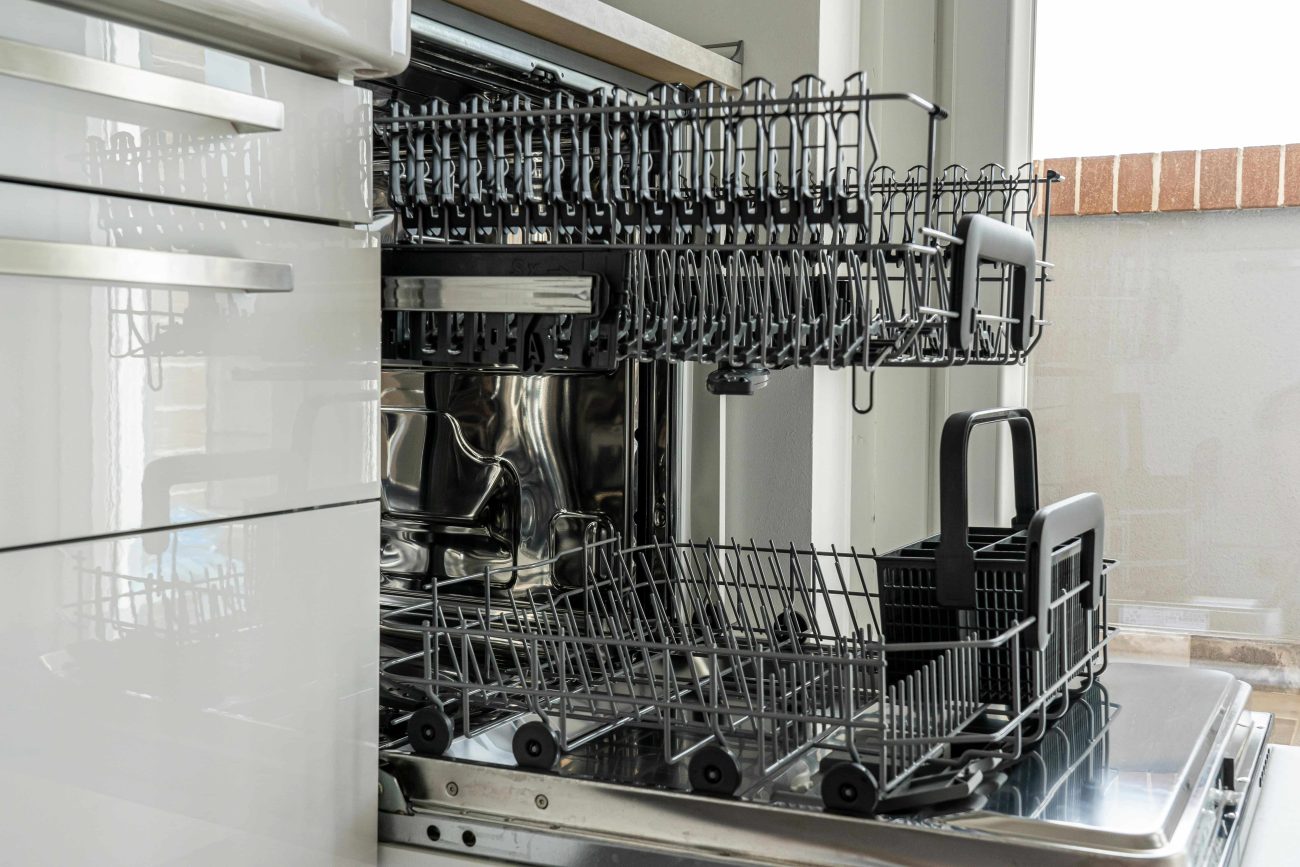Introduction
Is your dishwasher leaving food residue, greasy marks, or cloudy glasses? You’re not alone. Many households face the issue of a dishwasher not cleaning properly. In this 2025 expert guide, you’ll learn exactly how to fix a dishwasher that’s not cleaning, why it happens, and how to prevent it in the future.
Signs Your Dishwasher Isn’t Cleaning
Before diving into fixes, here are signs something’s wrong:
- Food remains on dishes
- Cloudy glasses
- Greasy film
- Bad odor
- Wet dishes after a cycle
- Soap dispenser still full
Common Reasons a Dishwasher Doesn’t Clean
1. Clogged Spray Arms
Food debris can clog spray holes, reducing water pressure.
2. Dirty Filter
Blocked filters prevent proper water circulation.
3. Low Water Temperature
If under 120°F (49°C), detergent won’t dissolve well.
4. Wrong Detergent
Low-quality soap or too much detergent causes residue.
5. Bad Loading
Dishes blocking spray arms won’t get cleaned.
6. Hard Water
Mineral deposits block internal parts and spray holes.
7. Weak Pump
A failing pump lowers water pressure.
8. Faulty Heater
Without hot water, cleaning and drying suffer.
Safety First
- Unplug dishwasher
- Wait for parts to cool
- Wear gloves
Tools You’ll Need
- Screwdrivers
- Brush
- Vinegar
- Toothpick
- Bucket
How to Fix a Dishwasher That’s Not Cleaning
Step 1: Unclog Spray Arms
Remove, rinse, and clean with vinegar and toothpick.
Step 2: Clean Filter
Wash with soap and soak in vinegar.
Step 3: Run Vinegar Cycle
Place a cup on top rack and run hot cycle.
Step 4: Check Water Temperature
Use thermometer. Increase heater if under 120°F.
Step 5: Use Good Detergent and Rinse Aid
Use recommended brand and fill rinse aid compartment.
Step 6: Load Dishes Properly
Avoid overcrowding. Ensure spray arms can move freely.
Step 7: Check Circulation Pump
Listen for weak spray. Inspect for damage.
Step 8: Inspect Heater Element
Check for damage or test with multimeter.
Deep Maintenance Tips
- Monthly vinegar cleaning
- Clean door gasket
- Keep door slightly open after use
Preventive Maintenance
- Rinse large food before loading
- Monthly spray arm and filter cleaning
- Use dishwasher cleaner
- Use softeners in hard water areas
- Run sink hot water first
When to Call a Technician
- Still dirty after cleaning
- No fill or drain
- Loud noises
- Leaks
FAQ
Q1: How often should I clean the filter?
A: Monthly.
Q2: Why are my dishes wet after cleaning?
A: Likely faulty heater or missing rinse aid.
Q3: Can I use bleach?
A: No. It can damage parts.
Q4: My new dishwasher cleans poorly. Why?
A: Check water temp and detergent.
Q5: Can extra soap cause issues?
A: Yes. It leaves foam and residue.
Q6: Is vinegar safe?
A: Yes. It removes deposits.
Q7: What causes cloudy glass?
A: Hard water and excess detergent.
Q8: Should I pre-rinse?
A: Just scrape off food; full rinse not needed.
Conclusion
A dishwasher that doesn’t clean well can be frustrating. But with simple fixes like unclogging spray arms, cleaning the filter, and using proper detergent, you can restore full function. Routine care keeps it running like new.
